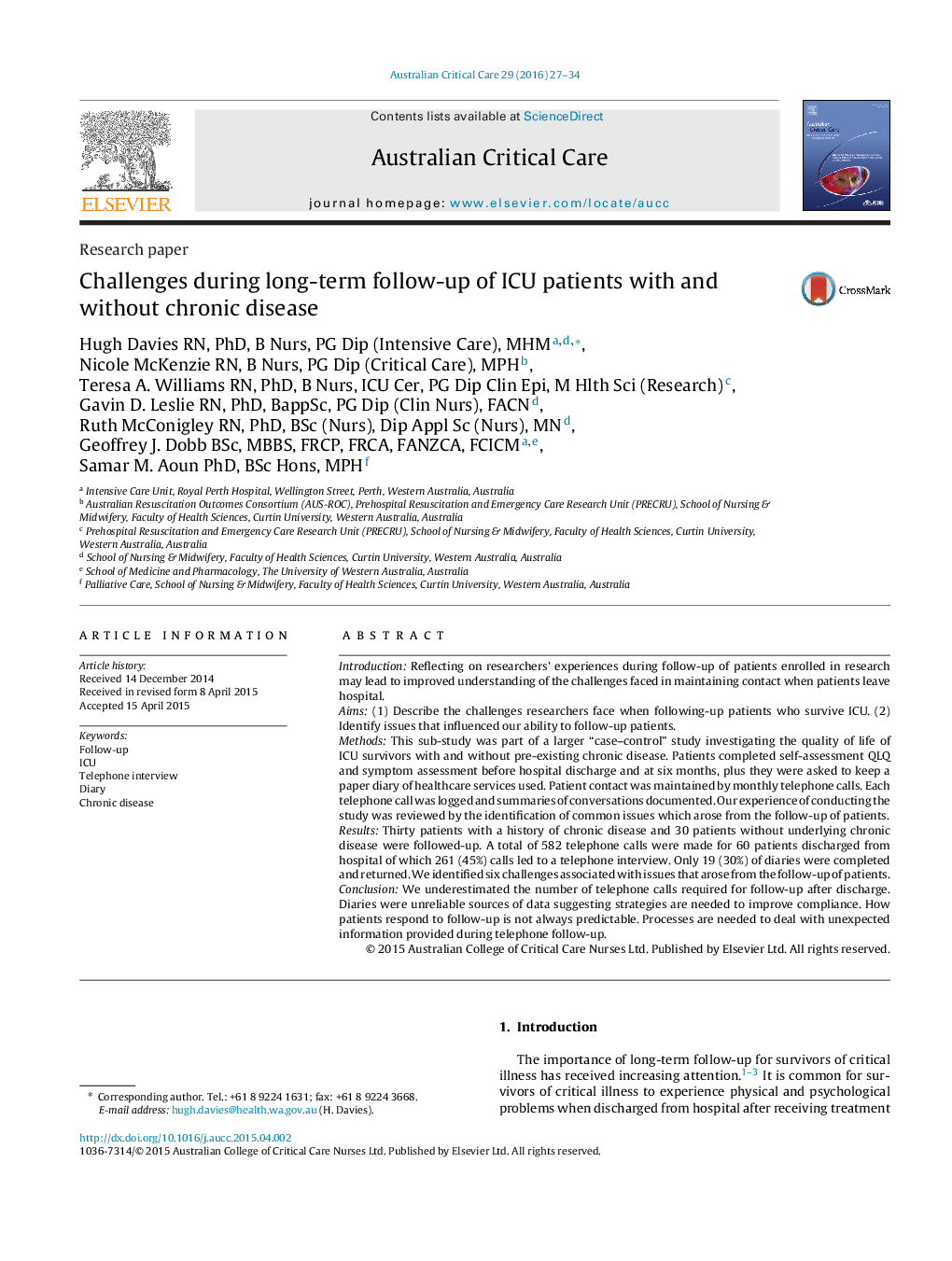| Article ID | Journal | Published Year | Pages | File Type |
|---|---|---|---|---|
| 2606384 | Australian Critical Care | 2016 | 8 Pages |
IntroductionReflecting on researchers’ experiences during follow-up of patients enrolled in research may lead to improved understanding of the challenges faced in maintaining contact when patients leave hospital.Aims(1) Describe the challenges researchers face when following-up patients who survive ICU. (2) Identify issues that influenced our ability to follow-up patients.MethodsThis sub-study was part of a larger “case–control” study investigating the quality of life of ICU survivors with and without pre-existing chronic disease. Patients completed self-assessment QLQ and symptom assessment before hospital discharge and at six months, plus they were asked to keep a paper diary of healthcare services used. Patient contact was maintained by monthly telephone calls. Each telephone call was logged and summaries of conversations documented. Our experience of conducting the study was reviewed by the identification of common issues which arose from the follow-up of patients.ResultsThirty patients with a history of chronic disease and 30 patients without underlying chronic disease were followed-up. A total of 582 telephone calls were made for 60 patients discharged from hospital of which 261 (45%) calls led to a telephone interview. Only 19 (30%) of diaries were completed and returned. We identified six challenges associated with issues that arose from the follow-up of patients.ConclusionWe underestimated the number of telephone calls required for follow-up after discharge. Diaries were unreliable sources of data suggesting strategies are needed to improve compliance. How patients respond to follow-up is not always predictable. Processes are needed to deal with unexpected information provided during telephone follow-up.
